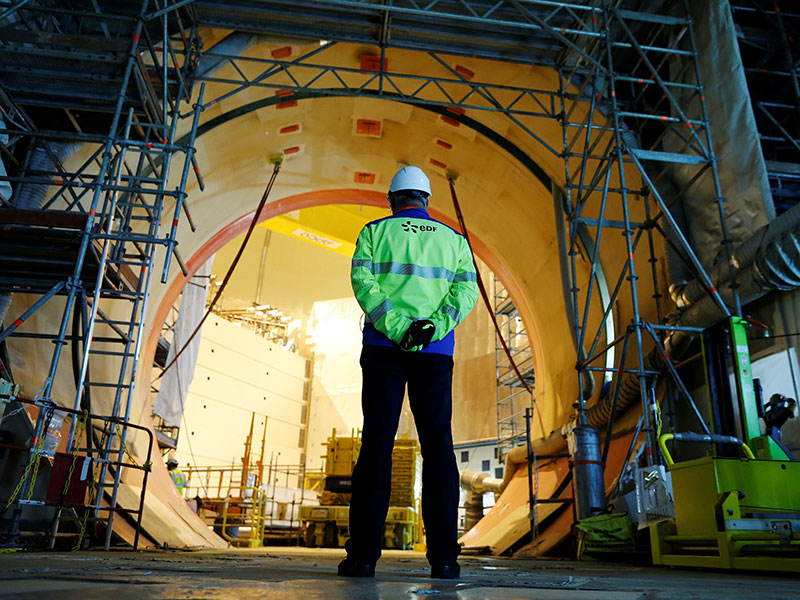EDF reveals further cost overruns and delays to its Flamanville nuclear reactor
Problems at EDF’s long-awaited Flamanville Nuclear Power Plant will see the group’s flagship EPR project encounter fresh delays and cost overruns, raising questions over its commercial viability

In April, EDF revealed that problems with the weldings at its flagship nuclear site could impact the project’s costs and timetable following an assessment by the French Nuclear Safety Authority
The cost of EDF’s new Flamanville nuclear reactor has swelled to more than three times the French state-owned utility’s original budget after further issues were revealed in the construction process.
EDF said target construction costs had risen by €400m ($468m) to €10.9bn ($12.7bn). Already seven years behind schedule, the project will now be delayed by another year, with the loading of nuclear fuel not expected until the fourth quarter of 2019.
In April, EDF revealed that problems with the weldings at its flagship nuclear site could impact the project’s costs and timetable following an assessment by the French Nuclear Safety Authority.
With Europe’s EPR projects all facing cost overruns and delays, questions have been raised about their commercial viability
On July 25, EDF said 33 of 148 inspected welds were found to have “quality deficiencies” and would be repaired: “EDF teams and their industrial partners are fully mobilised and are continuing all other assembly and testing activities at the Flamanville [European Pressurised Reactor (EPR)], including the system performance tests.”
France’s Flamanville project is one of three EPRs currently being built across Europe. The third-generation technology has taken decades to develop and aims to improve safety, as well as reduce costs. EDF is also building the Olkiluoto 3 project in Finland and Hinkley Point C in the UK, both of which are also behind schedule.
Earlier in July, China’s Taishan 1 became the first EPR in the world to be successfully connected to the power grid in a landmark moment for the new reactor design. Built by EDF’s subsidiary, Framatome, the reactor is expected to go into full operation later this year.
With Europe’s EPR projects all facing cost overruns and delays, questions have been raised about their commercial viability. While costs for sources of power such as renewable energy continue to fall at a rapid rate, nuclear power is moving in the wrong direction as construction projects get even more expensive.













